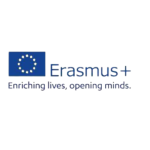
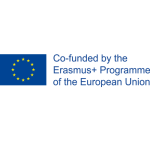
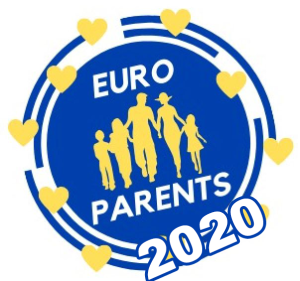
Europarents 2020 – ERASMUS+ 2020-1-DE02-KA204007394
The family is the smallest system in European society, the starting point for democracy building and social change, and therefore deserves special support. Families across Europe are in conflict about similar issues, that almost everyone is “stuck” in the same places.
In “Europarents 2020″we will first conduct a survey to determine our further course of action based on the needs of parents and their children. Afterwards, we want to develop a game together that facilitates, stimulates and enhances communication about difficult topics in the family. Experience shows that many parents are relieved when they realize that they are not alone with their problems. With the game to be developed they can not only get a feeling for the fact that some topics move families all over Europe, but also come directly into contact with approaches from other countries and can playfully reflect on it.
Furthermore, the needs analysis, the further exchange and the joint development of the game will lead to an additional professionalization of the partner organisations involved in implementing this project. One target group are the employees of the organisations who, through their work and finally through the distribution of the game in the vicinity of the organisation, will carry the results into the target group of parents and families. In this way, not only the individual organisations benefit from the European exchange, but also the families can get a feeling that other people in Europe are similar to themselves, a feeling for the European community, and at the same time find new solutions for family conflicts.
During the two years project life time, there are planned four project meetings: one in Germany, one in Spain, one in Bulgari and one in Austria. The meetings have the goal to allow members of the partner organisation discuss management aspects of the project and ensure a successful implementation.
Within the project there are planned to be produced two intellectual outputs: “Comparison and analysis of the situation of families in Europe” and “ Europarents – the game”.
- Comparison and analysis of the situation of families in Europe
Families across Europe are getting into conflicts over similar issues. Especially the use of new media, educational issues, dealing with money and the compatibility of family and career are hot topics that concern many families in Europe. On the basis of desktop research, the aim is to determine at the national level of the partners’ countries which problems and needs families have in the 21st century. In order to specify these findings in more detail we will conduct a survey to orientate further procedures exactly to the needs of the parents.
This country comparison and analysis will show that the situation at the national level of the countries participating in the project is not always identical and may be very different.
In total, the survey should involve at least 80 families from each partner country. Each partner must then evaluate the results and document them.
The research result will be sent as a text file by e-mail to relevant stakeholders and will also be available via the project website and other channels (Facebook, EPALE).
- Europarents – the game
Games that create a pleasant atmosphere can be particularly helpful in addressing and reflecting on conflictual, potentially unpleasant topics. Therefore, the main product in “Europarents” will be a card game based on classic games such as “Sympathy” or the relatively new and popular game “Vertellis”. As a further preparation we use the Europe-wide survey for a precisely development of the game to meet the needs of European families. The game topics are: “Education (especially media education, different ideas)”, “Dealing with money”, “Communication and Culture of Dispute”, “Compatibility of Family and Work/ Gender Equality (including the new role of fathers)” and others, which were discussed in the course of the survey.
On these subjects, playing cards will be developed. On these cards players can find suggestions for conversations, ideas for role plays, pictures as basis for discussion or questions for philosophising, e.g. “What do you think the person to your right would like to spend money on?”, “How is, in your opinion, in your family the compatibility of family and career?”, “What do you like about your upbringing?”, “What positive rituals do you have as a family?”, etc. Some cards are produced blank, so that the players can contribute their own ideas.
After completion of the development phase and a small test in the consortium the game will be presented in the respective national language with parents and stakeholders such as e.g. family counsellors or city youth workers in each partner country and tested once in the prototype version. This phase serves as a means of quality assurance, in order to to ensure that we are geared precisely to their needs.
In accordance with the recommendation of the well-known family therapist Jesper Juul: “Forge the iron while it is cold”, the individual family members can thus enter into conversation in a relaxed atmosphere about topics for which there is too little time in everyday life and which thus lead to conflicts.
Our Partners
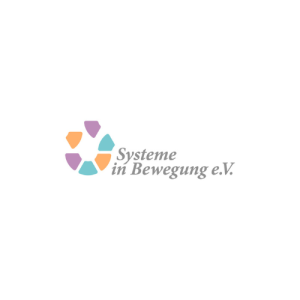
Cordinador: Systeme in Bewegung e. V., Winsen
Systeme in Bewegung e.V. is an association for Europe-wide networking and support for families. We carry out projects for family help and child and youth work at regional and European level.

Akademie für Politische Bildung und demokratiefördernde Maßnahmen
The Academy of Civic Education and Democracy Promotion Measures is a small non-profit association focused on civic education, equal opportunities for unemployed and employed individuals of all ages, migrants, and especially women in the job market, as well as learning opportunities.
Through a range of educational opportunities for schools, businesses, and public institutions, we support the personal and academic development of children, adults, and disadvantaged individuals.
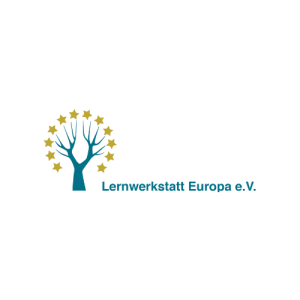
Учебна Работилница Европа
The association "Academic Workshop Europe" ("Учебна Работилница Европа") (AWE) was registered in December 2012 in Pleven, Bulgaria, by a group of 7 individuals with the aim of conducting and participating in socially significant activities. Within the association, there are 2 employees and volunteers, including educators, teachers, sociologists, economists, and young individuals working in fields such as art and design, information technology, and others.
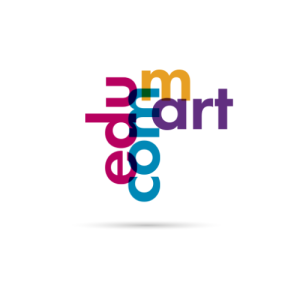
Educommart
Our company was established in 2016 and is a non-profit urban organization headquartered in Athens. Our aim is to create a hub for creative education: for individuals who wish to provide educational and cultural significance, as well as for corporate organizations whose mission is to contribute to social and economic development through their actions. In collaboration with our company, these organizations participate in the implementation of educational programs that align with this direction.
